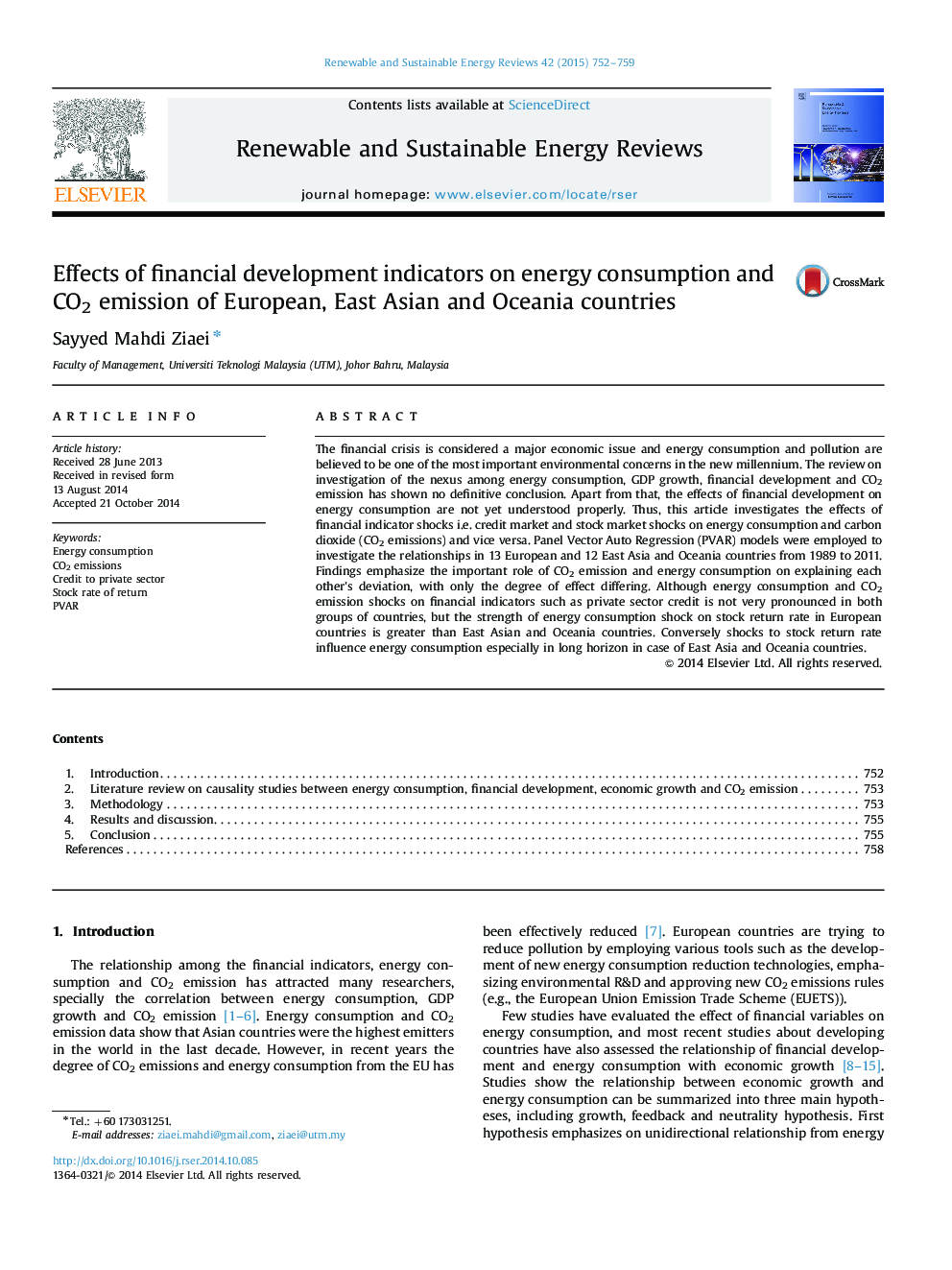| Article ID | Journal | Published Year | Pages | File Type |
|---|---|---|---|---|
| 8117973 | Renewable and Sustainable Energy Reviews | 2015 | 8 Pages |
Abstract
The financial crisis is considered a major economic issue and energy consumption and pollution are believed to be one of the most important environmental concerns in the new millennium. The review on investigation of the nexus among energy consumption, GDP growth, financial development and CO2 emission has shown no definitive conclusion. Apart from that, the effects of financial development on energy consumption are not yet understood properly. Thus, this article investigates the effects of financial indicator shocks i.e. credit market and stock market shocks on energy consumption and carbon dioxide (CO2 emissions) and vice versa. Panel Vector Auto Regression (PVAR) models were employed to investigate the relationships in 13 European and 12 East Asia and Oceania countries from 1989 to 2011. Findings emphasize the important role of CO2 emission and energy consumption on explaining each other׳s deviation, with only the degree of effect differing. Although energy consumption and CO2 emission shocks on financial indicators such as private sector credit is not very pronounced in both groups of countries, but the strength of energy consumption shock on stock return rate in European countries is greater than East Asian and Oceania countries. Conversely shocks to stock return rate influence energy consumption especially in long horizon in case of East Asia and Oceania countries.
Keywords
Related Topics
Physical Sciences and Engineering
Energy
Renewable Energy, Sustainability and the Environment
Authors
Sayyed Mahdi Ziaei,
